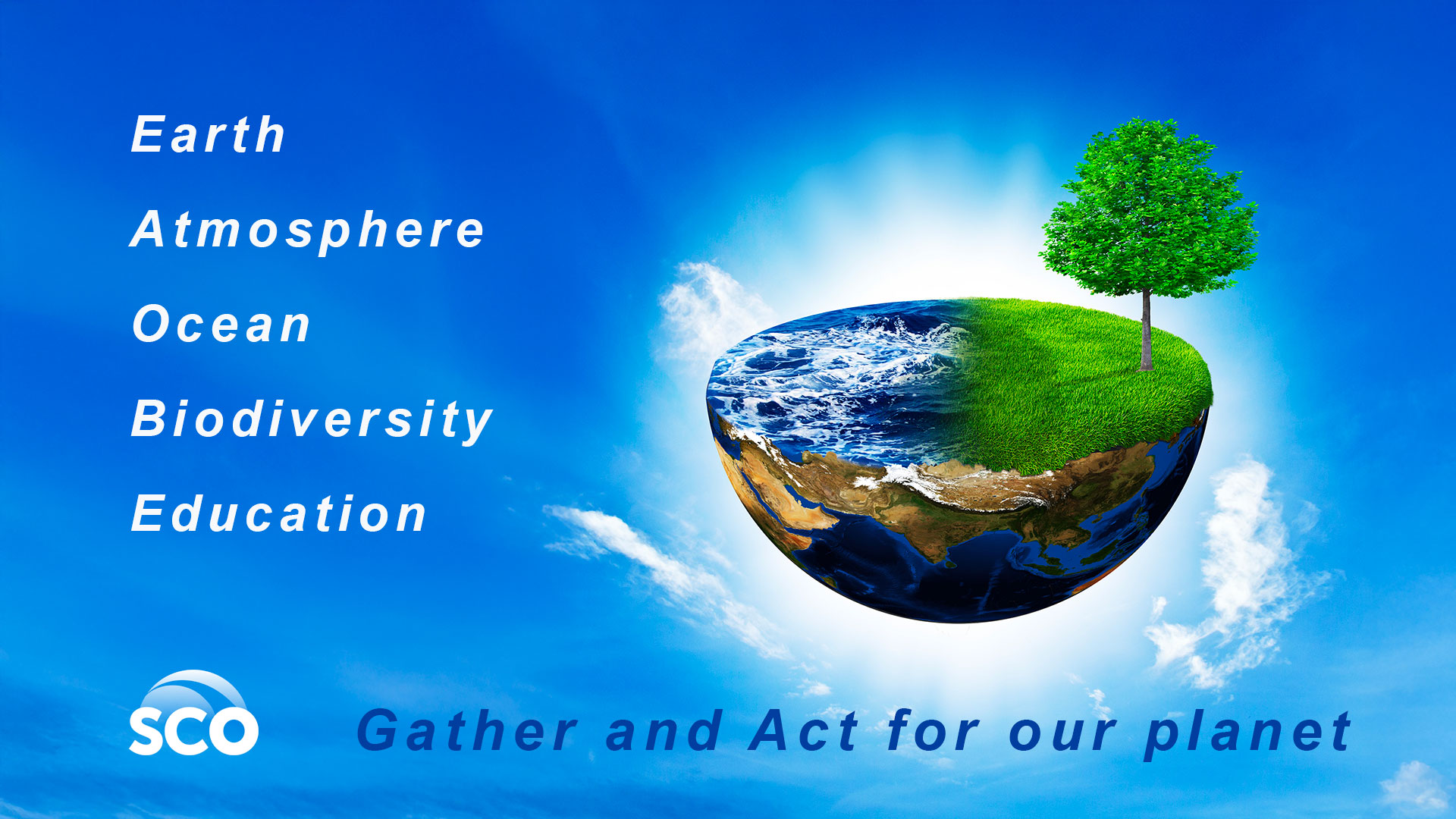SCO International: 2025 Edition
Check this article regularly, to which we'll link project presentation pages as they come online.
🌍 International organizations: 2 projects
Supported by UNEP (GRID-Geneva)
Theme: Education/Awareness
The EHOP project presents the main environmental changes linked to climate change, deforestation, the drying up of lakes and seas, urbanization, soil degradation, pollution and the impact of conflicts or disasters. Thanks to an automated satellite data processing process, it is possible via a web interface to study the environmental changes of 66 sites over different dates. The software uses Landsat and Sentinel-2 images, but all types of satellite images can be included. Highly educational, the superimposition of before-and-after images makes it possible to visualize changes in a site, with an explanation of the phenomenon responsible for these evolutions.
- ERA Explorer app
Supported by ECMWF (European Centre for Medium-Range Weather Forecasts)
Theme: Education/Awareness
ERA Explorer is an application that lets you explore over 85 years of climate reanalysis data and produce climatological averages. It is based on ERA5, a multi-dimensional hourly reanalysis dataset providing, by period and location, values for climatic parameters and meteorological parameters: temperature, wind speed, relative humidity, etc. The application enables users to visualize and compare these data worldwide.
🇨🇳 SCO in China : 4 projects
Supported by Lanzhou University
Theme: Atmosphere & GHGs
The FY-PM Estimate project aims to provide more accurate monitoring of PM2.5 and PM10 particles across China to address air pollution exacerbated by climate change. Data derived from Chinese satellites (Feng Yun-4A and Feng Yun-4B) will be combined with machine learning models to enable the concentration of these particles to be estimated with high spatio-temporal resolution. This will enable us to fill in missing data linked to cloud cover.
- EWSHR (Early Warning Service of Health Risks due to atmospheric pollution caused by abnormal weather conditions)
Supported by Central South University, China
Theme: Atmosphere & GHGs
The EWSHR project aims to monitor the risk of exposure to air pollution, exacerbated by climate change. Using satellite data and digital meteorological models, an interactive website will generate maps and an early warning service for air pollution incidents. The site is intended as a tool to help manage waves of atmospheric pollutants.
Supported by East China Normal University
Theme: Atmosphere & GHGs
The AEROPMAP project aims to develop near-real-time, high-resolution air quality maps. These maps will provide daily data on aerosol optical depth and PM2.5 surface concentrations. They will be available on a web platform for air pollution management stakeholders.
- MethLandfill (Monitoring Methane Emissions from Landfills)
Supported by Henan University
Theme: Atmosphere & GHGs
Methane emissions from landfills are a significant contributor to climate change. By combining a satellite remote sensing system with a deep learning model, the MethLandfill project will accurately detect and quantify hot spots of high methane emissions in China. Presented on a website enabling users to explore trends and hotspots, the data generated will support methane reduction and waste management policies.
🇵🇭 SCO in the Philippines: 1 project
Supported by Philippine Space Agency
Theme: Coastal areas
Using in situ and Copernicus satellite data, the CopPhil-BlueHab project proposes to map and monitor coastal habitats such as coral reefs and seagrass beds in the Philippines. The data generated will provide real decision-making tools to support marine spatial planning and biodiversity conservation in a context of climate change. This study will be made available via the CopPhil infrastructure, a web-based Earth observation data platform to be deployed in 2025.
🇹🇭 SCO in Thailand: 2 projects
Supported by the Thai space agency GITSDA
Theme: Carbon
CarbonAtlas-THA aims to improve forest carbon stock estimation in Thailand, focusing on above- and below-ground biomass, dead wood and soil organic carbon. To achieve this, the project proposes to develop a centralized platform for collecting, analyzing and communicating data on forest carbon stocks. High-resolution satellite imagery, terrestrial lidar, drone data collection and AI-driven models will enable precise monitoring of these stocks and refinement of biomass estimates in Thailand.
- EO4AWD (Earth Observation for Alternate Water and Drying)
Supported by the Thai space agency GITSDA
Theme: Agriculture
Alternative water and drying (AWD) of rice fields can significantly reduce methane emissions from rice cultivation. Using satellite imagery and remote sensing techniques, the EO4AWD project aims to quantify these greenhouse gas reductions in Thailand, via a web platform. This initiative is part of the fight to mitigate climate change by encouraging sustainable agricultural practices while giving farmers access to carbon markets.
- HABHB (Harmful High Biomass Blooms)
Supported by Institute of Marine Research (IMR)
Theme: Coastal areas
HabHB aims to improve the detection and warning of high-biomass phytoplankton blooms in Norwegian fjords, whose adverse effect on coastal activities (aquaculture) is accentuated by climate change. This project therefore proposes to refine and validate existing warning services by integrating satellite observations, chlorophyll measurements and species identification. This information will be fed into the Algestatus.hi.no web portal for local authorities and aquaculture stakeholders.
Supported by Norwegian Environment Agency
Theme: Coastal areas
The ØKOSAT project aims to develop an operational system for monitoring and classifying the ecological status of Norwegian lakes and coastal waters. The aim is to improve methods for using satellite data to calculate various water quality parameters (chlorophyll-a concentration, turbidity, etc.). The data generated will be made available on a platform called "xcube ecosystem", intended for use by Norwegian national and regional environmental authorities.
🇬🇧 SCO in the UK: 1 project
- SEA-SMART (Sustainable Ecosystem Analytics for Seaweed Monitoring And Resilient Technologies)
Brought to you by Plastic-i Limited
Theme: Coastal areas
SEA-SMART combines satellite, AI and in situ data to study the sustainable cultivation of seaweed and kelp in South Africa and Tanzania. Based on the Plastic-i Observatory, a platform for monitoring marine plastic pollution, the project proposes to extend its functionalities to include monitoring seaweed and kelp ecosystems, tracking environmental threats and building coastal resilience.



